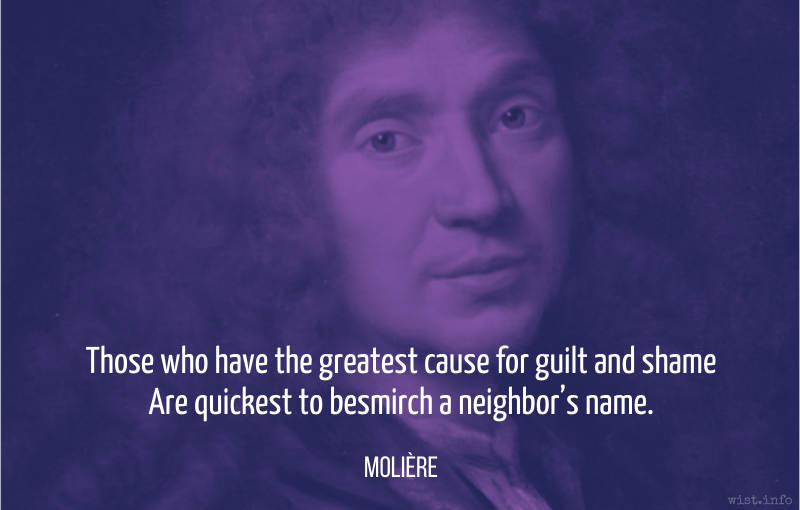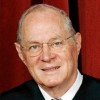You injure yourself by your own vindictiveness, and give your enemies too great an advantage, if you accuse them of things that are not true, and tell lies in order to disparage them.
[C’est se venger contre soi-même, et donner un trop grand avantage à ses ennemis, que de leur imputer de choses qui ne sont pas vraies, et de mentir pour les décrier.]
Jean de La Bruyère (1645-1696) French essayist, moralist
The Characters [Les Caractères], ch. 11 “Of Mankind [De l’Homme],” § 150 (11.150) (1688) [tr. Stewart (1970)]
(Source)
(Source (French)). Alternate translations:
We are reveng'd on our selves, and give our Enemies too much advantage over us, when we say things of them which are not true, and lie to reproach 'em.
[Bullord ed. (1696)]
'Tis reproaching our selves, and giving our Enemies too much advantage over us, to say things of them which are not true, and lie to disparage them.
[Curll ed. (1713)]
We are vindictive to our own loss, and give the Staff into our Enemies Hands, when we say things of them which are not true, and lie to defame them.
[Browne ed. (1752)]
To say things of our enemies which are not true, and to lie to defame them, is to avenge ourselves on ourselves, and give them too great an advantage over us.
[tr. Van Laun (1885)]
Quotations about:
libel
Note not all quotations have been tagged, so Search may find additional quotes on this topic.
DORINE: Those who have the greatest cause for guilt and shame
Are quickest to besmirch a neighbor’s name.[Ceux de qui la conduite offre le plus à rire
Sont toujours sur autrui les premiers à médire.]Molière (1622-1673) French playwright, actor [stage name for Jean-Baptiste Poquelin]
Tartuffe, Act 1, sc. 1 (1664) [tr. Wilbur (1963)]
(Source)
Alt. trans.:Original French.
- "They whose own conduct is the most ridiculous are always the first to slander others." [tr. Van Laun (1876)]
- "Since they are always talked about, / They're sniffing other scandal out." [tr. Bolt (2002)]
- "Those whose conduct gives room for talk / Are always the first to attack their neighbors." [Bartlett's]
A slander iz like a hornet, if you kant kill it dead the fus blo, you better not strike at it.
[A slander is like a hornet, if you can’t kill it dead the first blow, you better not strike at it.]
Josh Billings (1818-1885) American humorist, aphorist [pseud. of Henry Wheeler Shaw]
Everybody’s Friend, Or; Josh Billing’s Encyclopedia and Proverbial Philosophy of Wit and Humor, “Lobstir Sallad” (1874)
(Source)
If a man has reported to you that a certain person speaks ill of you, do not make any defense to what has been told you: but reply, The man did not know the rest of my faults, for he would not have mentioned these only.
Epictetus (c.55-c.135) Greek (Phrygian) Stoic philosopher
Enchiridion, 33 (c. AD 135) [tr. Long (1888)]
(Source)
Alt. trans.: "If anyone tells you that a certain person speaks ill of you, do not make excuses about what is said of you, but answer, 'He was ignorant of my other faults, else he would have not mentioned these alone.'" [tr. Higginson (1948)]
Even doubtful Accusations leave a Stain behind them.
Thomas Fuller (1654-1734) English physician, preacher, aphorist, writer
Gnomologia: Adages and Proverbs, #1395 (1732)
(Source)
I will not deny but that the best apology against false accusers is silence and sufferance, and honest deeds set against dishonest words.
Every life is its own excuse for being, and to deny or refute the untrue things that are said of you is an error in judgment. All wrong recoils upon the doer, and the man who makes wrong statements about others is himself to be pitied, not the man he vilifies. It is better to be lied about than to lie. At the last no one can harm us but ourselves.
Elbert Hubbard (1856-1915) American writer, businessman, philosopher
The Roycroft Dictionary and Book of Epigrams (1923)
(Source)
Were there no hearers, there would be no backbiters.
George Herbert (1593-1633) Welsh priest, orator, poet.
Jacula Prudentum, or Outlandish Proverbs, Sentences, &c. (compiler), # 69 (1640 ed.)
(Source)
The remedy for speech that is false is speech that is true. This is the ordinary course in a free society. The response to the unreasoned is the rational; to the uninformed, the enlightened; to the straight-out lie, the simple truth.
.
No man ought to be hindered saying or writing what he pleases on the conduct of those who undertake the management of national affairs, in which all are concerned, and therefore have the right to inquire, and to publish their suspicions concerning them. For if you punish the slanderer, you deter the fair inquirer.
James Burgh (1714-1775) British politician and writer
Political Disquisitions, Book 1 “Of Government, briefly” (1774)
(Source)
I complained before a learned man that someone had accused me of corruption. He said, “Put him to shame by your good conduct.”
He that flings Dirt at another dirtieth himself most.
Thomas Fuller (1654-1734) English physician, preacher, aphorist, writer
Gnomologia: Adages and Proverbs, #2107 (1732)
(Source)
Any man who attains a high place among you, from the President downwards, may date his downfall from that moment; for any printed lie that any notorious villain pens, although it militate directly against the character and conduct of a life, appeals at once to your distrust, and is believed. You will strain at a gnat in the way of trustfulness and confidence, however fairly won and well deserved; but you will swallow a whole caravan of camels, if they be laden with unworthy doubts and mean suspicions. Is this well, think you, or likely to elevate the character of the governors or the governed among you?
IAGO: Good name in man and woman, dear my lord,
Is the immediate jewel of their souls.
Who steals my purse steals trash. ’Tis something, nothing;
’Twas mine, ’tis his, and has been slave to thousands.
But he that filches from me my good name
Robs me of that which not enriches him
And makes me poor indeed.William Shakespeare (1564-1616) English dramatist and poet
Othello, Act 3, sc. 3, l. 182ff (3.3.182-188) (1603)
(Source)
Another and more special provision has been made by one of the amendments to the Constitution, which expressly declares, that “Congress shall make no law respecting an establishment of religion, or prohibiting the free exercise thereof, or abridging the freedom of speech, or of the press,” thereby guarding, in the same sentence, and under the same words, the freedom of religion, of speech, and of the press, insomuch that whatever violated either throws down the sanctuary which covers the others, — and that libels, falsehood, and defamation, equally with heresy and false religion, are withheld from the cognizance of federal tribunals.
Thomas Jefferson (1743-1826) American political philosopher, polymath, statesman, US President (1801-09)
“Kentucky Resolutions,” Resolution 3 (1798)
(Source)
In protest of the Alien and Sedition Acts.
SHERIDAN: Oh, now that is a lie!
DELENN: Minbari do not lie.
SHERIDAN: Well then it is slander.
DELENN: To be slander, it must be false. That’s two down.
SHERIDAN: Well then it’s damned inconvenient.
DELENN: The truth always is.
Freedom to discuss public affairs and public officials is unquestionably, as the Court today holds, the kind of speech the First Amendment was primarily designed to keep within the area of free discussion. To punish the exercise of this right to discuss public affairs or to penalize it through libel judgments is to abridge or shut off discussion of the very kind most needed. This Nation, I suspect, can live in peace without libel suits based on public discussions of public affairs and public officials. But I doubt that a country can live in freedom where its people can be made to suffer physically or financially for criticizing their government, its actions, or its officials.
Hugo Black (1886-1971) American politician and jurist, US Supreme Court Justice (1937-71)
New York Times Co. v. Sullivan, 376 U.S. 254, 296-297 (1964) [concurring]
(Source)























